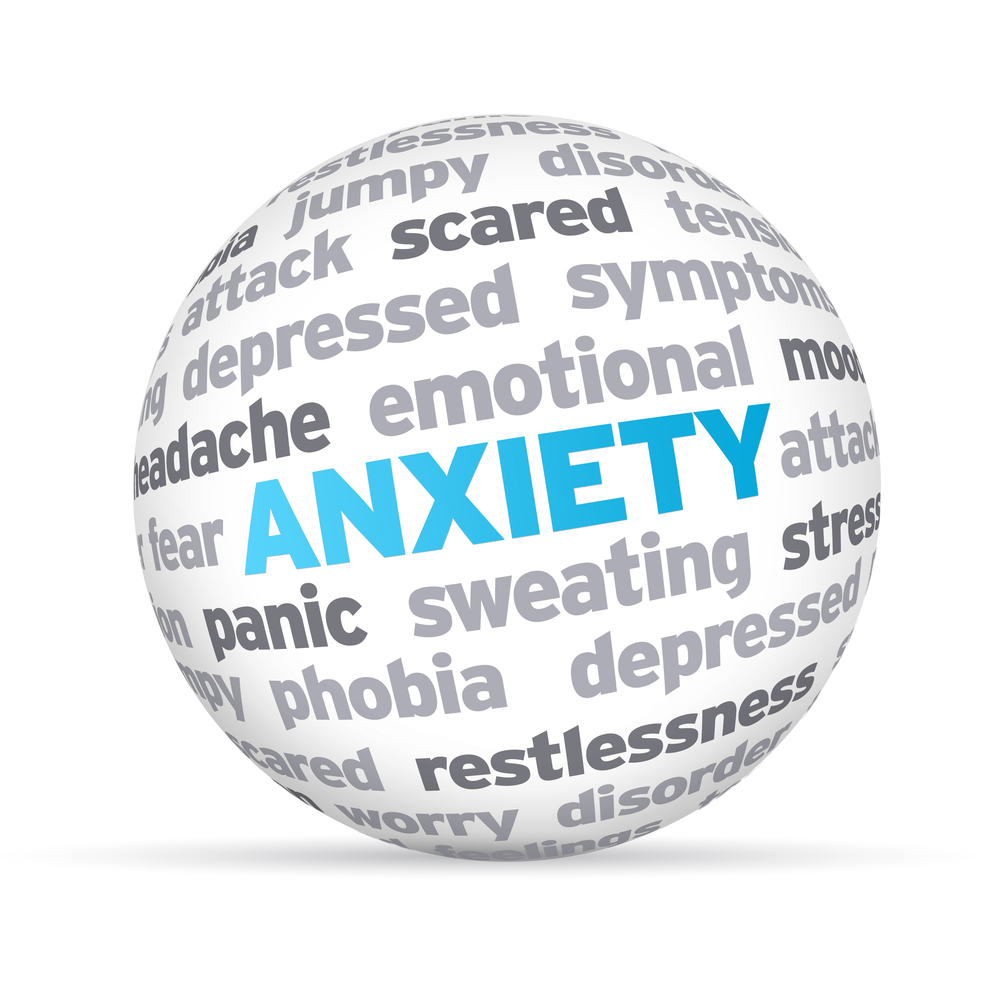Counselling for anxiety disorder: Personalized sessions crafted for your needs
Counselling for anxiety disorder: Personalized sessions crafted for your needs
Blog Article
Discovering Different Methods in Therapy for Anxiety Condition for Long Lasting Adjustment
When tackling stress and anxiety problems, it's important to discover a range of therapy techniques. Each technique uses one-of-a-kind understandings and devices to aid you handle your signs effectively. You could locate that integrating techniques can generate the most effective outcomes. Nevertheless, comprehending the subtleties of these strategies is crucial to fostering lasting change. What happens if the appropriate mix could launch a brand-new degree of psychological health for you?
Comprehending Stress And Anxiety Problems: A Quick Review
Anxiety problems, which impact countless individuals worldwide, can considerably influence day-to-day live. You might experience overwhelming feelings of anxiety or worry that seem irrepressible. These feelings can result in physical signs like an auto racing heart, sweating, or even lightheadedness. Common kinds of stress and anxiety problems consist of generalized anxiety problem, panic attack, and social anxiousness disorder. Each has one-of-a-kind indicators, however they all share a propensity to disrupt your routine and relationships.Understanding the origin of your stress and anxiety is vital. It may come from genes, brain chemistry, or life experiences. Recognizing your triggers can help you handle your reactions better. It's crucial to remember that you're not alone in this battle. Lots of people deal with similar challenges, and seeking aid is a solid step towards feeling much better. By discovering anxiousness disorders, you're currently on the course to understanding and handling your condition better.
Cognitive-Behavioral Treatment: Challenging Unfavorable Thought Patterns
In Cognitive-Behavioral Treatment, you'll begin by identifying the adverse idea activates that add to your stress and anxiety. You'll function on changing them with more favorable choices as soon as you identify these ideas. Together, you'll build reliable coping techniques to help handle your stress and anxiety in daily situations.
Recognizing Unfavorable Thought Triggers

When you experience minutes of distress, identifying the specific triggers behind your negative thoughts can be essential in handling stress and anxiety. Begin by focusing on circumstances that provoke feelings of worry or fear. Is it a crowded area, an upcoming due date, or a conversation with certain individuals? Write these circumstances in a journal. This will certainly aid you determine patterns in your thinking. Additionally, notice physical experiences that accompany your adverse ideas, like an auto racing heart or rigidity in your chest. By pinpointing these triggers, you obtain insight into what's sustaining your anxiousness. Recognizing these connections is the initial step in challenging those ideas and ultimately reclaiming control over your psychological actions.
Replacing Ideas With Positives
Challenging adverse idea patterns is an essential action in transforming your mindset and lowering anxiety. You may commonly discover on your own entraped in cycles of insecurity or tragic thinking. Rather of allowing these ideas dictate your feelings, practice replacing them with favorable affirmations or sensible options. For circumstances, when you think, "I can't handle this," move it to, "I can handle difficulties one step each time." This simple adjustment can considerably influence your emotional state. On a regular basis identifying and responding to these negative ideas helps produce a healthier interior dialogue. Bear in mind, it takes some time and initiative, yet constantly exercising this technique can bring about lasting adjustment, encouraging you to face stress and anxiety with restored self-confidence and durability.
Structure Coping Techniques With Each Other
Replacing unfavorable thoughts is only the start of taking care of anxiousness properly. To produce long lasting change, you need to develop coping techniques that encourage you. Cognitive-Behavioral Therapy (CBT) assists you identify and challenge those purposeless idea patterns. With each other, you and your therapist can check out just how these ideas impact your feelings and behaviors.Start by developing useful methods, like journaling or mindfulness workouts, that permit you to face anxiety head-on. When you encounter your worries gradually, you'll discover to respond in different ways.

Mindfulness and Acceptance-Based Approaches: Cultivating Present-Moment Recognition
As you browse the intricacies of anxiety, integrating mindfulness and acceptance-based approaches can significantly boost your capability to grow present-moment understanding. By concentrating on the below and currently, you'll locate that you can observe your ideas and feelings without judgment (Counseling services for anxiety). This practice assists you acknowledge your anxiousness without feeling bewildered by it.Engaging in mindfulness workouts, such as deep breathing, body scans, or assisted reflections, allows you to ground yourself in your current experience. Acceptance-based methods motivate you to welcome your feelings instead of deal with versus them. They shed their power over you.Incorporating these methods right into your daily regimen can transform just how you react to anxiety when you approve your feelings. You'll develop strength and discover to navigate demanding scenarios with better convenience. Inevitably, cultivating present-moment recognition lays the foundation for enduring change, encouraging you to lead a much more satisfying life
Direct Exposure Therapy: Facing Fears Slowly
Exposure treatment helps you challenge your anxieties in a progressive way, making it therapy for anxiety less overwhelming. You'll find out methods to encounter anxiety-provoking scenarios action by step, while also developing coping approaches to handle your reactions. This strategy encourages you to take control and reduce anxiousness in time.
Steady Exposure Methods

When facing anxiety, gradually facing your fears can be a powerful method to regain control. This method, recognized as steady direct exposure, includes gradually exposing on your own to the circumstances or things that activate your stress and anxiety. Begin with much less daunting scenarios and gradually function your way up to even more challenging ones. If you're worried of public talking, you may begin by speaking in front of a mirror, after that proceed to sharing ideas with a close friend, and ultimately address a little team. Each step aids desensitize you to the anxiety, building your confidence with time. Keep in mind, it's necessary to speed on your own and commemorate little success as you relocate through this process, strengthening your ability to manage anxiousness effectively.
Structure Coping Approaches
Structure effective coping methods is important for handling anxiousness, specifically as you challenge your anxieties progressively - Counseling services for anxiety. One powerful technique is direct exposure treatment, where you start by encountering your anxieties in a regulated manner. Begin with less intimidating scenarios and slowly work your means up to even more difficult circumstances. This steady exposure helps desensitize you to anxiety triggers, making them less overwhelming.Incorporate leisure strategies, such as deep breathing or mindfulness, to calm your mind during exposure. Track your progression, celebrating little success along the means to enhance your self-confidence. Bear in mind, it's all right to take your time; the goal isn't excellence but constant enhancement. By constructing these methods, you'll encourage yourself to navigate anxiousness and embrace life more fully
Psychodynamic Treatment: Revealing Origin Causes of Anxiety
Psychodynamic treatment checks out the subconscious mind, disclosing the source of your anxiety. By analyzing your ideas, sensations, and past experiences, this approach assists you discover underlying conflicts and unsolved concerns that might contribute to your present stress and anxiety. You'll collaborate with a therapist to check out childhood years experiences, relationships, and emotional patterns that shape your feedbacks today.As you obtain understanding right into these much deeper layers of your psyche, you'll begin to acknowledge just how past events influence your present behavior. This understanding can lead to catharsis, allowing you to process feelings you could have suppressed.Through the healing relationship, you can likewise recognize protection systems that might have created with time, supplying a more clear course to transform. Ultimately, psychodynamic treatment furnishes you with the devices to address your stress and anxiety at its core, promoting enduring transformation in your psychological well-being.
Integrative and Alternative Techniques: Combining Techniques for Greater Efficiency
Integrating different therapeutic techniques can boost your journey toward handling stress and anxiety better. By combining elements from cognitive-behavioral treatment, mindfulness methods, and all natural techniques, you can produce a customized technique that addresses your distinct requirements. For instance, you may utilize cognitive-behavioral strategies to test unfavorable thought patterns while incorporating mindfulness exercises to ground yourself in the here and now moment.Additionally, discovering holistic methods such as yoga exercise or meditation can promote relaxation and lower anxiousness signs. This blend permits you to establish better self-awareness and resilience.Experimenting with these varied techniques can assist you find what reverberates most with you. Bear in mind, it has to do with finding a synergy that works, as opposed to sticking to a single approach. This integrative approach not just offers immediate alleviation however likewise promotes long-lasting skills for taking care of anxiousness, empowering you to recover control over your life.
The Role of Support Solutions: Building Resilience With Connection
While it might appear that taking care of anxiousness is a singular trip, having a solid support system can play an essential function in your durability. Surrounding on your own with compassionate buddies, family, or support system develops a risk-free area where you can openly share your experiences and sensations. You remind yourself that you're not alone in this struggle.These relationships offer inspiration and can provide useful coping strategies that have actually worked for others when you connect with others. It's also a possibility to acquire perspective; pals can aid you see circumstances in different ways, lowering sensations of isolation.Moreover, psychological support promotes a sense of belonging, which can substantially ease anxiousness symptoms. By leaning on your support system, you can build strength and tackle challenges better. Remember, reaching out for help suggests toughness, and it can make all the difference in your journey towards handling stress and anxiety.
Regularly Asked Questions
What Are the Usual Signs of Anxiety Disorders?
You might experience restlessness, tiredness, trouble focusing, impatience, muscle stress, and sleep disturbances. Physical signs and symptoms can include quick heartbeat, sweating, and shivering. Acknowledging these signs early can assist you seek appropriate support and treatment.
How Much Time Does Treatment Normally Last for Stress And Anxiety Conditions?
Treatment for anxiety disorders normally lasts anywhere from a couple of weeks to a number of months. It really relies on your individual demands, progress, and the strategies your therapist makes use of to assist you handle your anxiety effectively.
Can Medicine Be Used Along With Treatment for Anxiety?
Yes, medicine can definitely be made use of together with treatment for anxiety. Combining both strategies frequently improves treatment effectiveness, helping you handle signs and symptoms while checking out underlying problems via counseling (Counseling services for anxiety). Always consult your doctor for tailored recommendations
Are There Self-Help Techniques for Taking Care Of Stress And Anxiety?
Yes, there are several self-help techniques for managing anxiety. You can exercise mindfulness, take part in regular exercise, maintain a balanced diet plan, establish a routine, and use deep breathing techniques to help in reducing anxiousness signs and symptoms successfully.
How Do I Know if I Need Professional Assistance for Stress And Anxiety?

Report this page